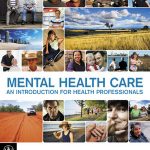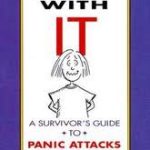The Psychophysiology of Trauma and Trauma Treatment
For both clinicians and their clients there is tremendous value in understanding the psychophysiology of trauma and knowing what to do about its manifestations.
This book illuminates that physiology, shining a bright light on the impact of trauma on the body and the phenomenon of somatic memory.
It is now thought that people who have been traumatized hold an implicit memory of traumatic events in their brains and bodies. That memory is often expressed in the symptomatology of posttraumatic stress disorder-nightmares, flashbacks, startle responses, and dissociative behaviours. In essence, the body of the traumatized individual refuses to be ignored.
While reducing the chasm between scientific theory and clinical practice and bridging the gap between talk therapy and body therapy, Rothschild presents principles and non-touch techniques for giving the body its due. With an eye to its relevance for clinicians, she consolidates current knowledge about the psychobiology of the stress response both in normally challenging situations and during extreme and prolonged trauma. This gives clinicians from all disciplines a foundation for speculating about the origins of their clients’ symptoms and incorporating regard for the body into their practice. The somatic techniques are chosen with an eye to making trauma therapy safer while increasing mind-body integration.
Packed with engaging case studies, The Body Remembers integrates body and mind in the treatment of posttraumatic stress disorder. It will appeal to clinicians, researchers, students, and general readers.
Contents:
- ACKNOWLEDGMENTS
- INTRODUCTION
- On Building Bridges
- Working with the Body Does Not Require Touch
- The False Memory Controversy
- Organization of This Book
- A Disclaimer
- PART I. THEORY
- 1. Overview of Posttraumatic Stress Disorder (PTSD): The Impact of Trauma on Body and Mind
- Charlie and the Dog, Part I
- The Symptomatology of PTSD
- Distinguishing Stress, Traumatic Stress, PTS, and PTSD
- Survival and the Nervous System
- Defensive Response to Remembered Threat
- Dissociation, Freezing, and PTSD
- Consequences of Trauma and PTSD
- 2. Development, Memory, and the Brain
- The Developing Brain
- What Is Memory?
- 3. The Body Remembers: Understanding Somatic Memory
- The Sensory Roots of Memory
- Charlie and the Dog, Part II
- The Autonomic Nervous System: Hyperarousal and the Reflexes of Fight, Flight, and Freeze
- The Somatic Nervous System: Muscles, Movement, and Kinesthetic Memory
- Emotions and the Body
- 4. Expressions of Trauma Not Yet Remembered: Dissociation and Flashbacks
- Dissociation and the Body
- Flashbacks
- PART II. PRACTICE
- 5. First, Do No Harm
- On Braking and Accelerating
- Evaluation and Assessment
- The Role of the Therapeutic Relationship in Trauma Therapy
- Safety
- Developing and Reacquainting Resources
- Oases, Anchors, and the Safe Place
- The Importance of Theory
- Respecting Individual Differences
- Ten Foundations for Safe Trauma Therapy
- 6. The Body as Resource
- Body Awareness
- Making Friends with Sensations
- The Body as Anchor
- The Body as Gauge
- The Body as Brake
- The Body as Diary: Making Sense of Sensations
- Somatic Memory as Resource
- Facilitating Trauma Therapy Using the Body as Resource
- 7. Additional Somatic Techniques for Safer Trauma Therapy
- Dual Awareness
- Muscle Toning: Tension vs. Relaxation
- Physical Boundaries
- The Question of Client-Therapist Touch
- Mitigating Session Closure
- 8. Somatic Memory Becomes Personal History
- Beware the Wrong Road
- Separating Past from Present
- Working with the Aftermath of the Trauma First
- Bridging the Implicit and the Explicit
- Charlie and the Dog, the Final Episode
- REFERENCES
- INDEX
Author Bio:
Babette Rothschild, MSW, internationally recognized PTSD specialist, has authored seven books and edits the 8 Keys to Mental Health series for W. W. Norton. Following nine exciting years studying and working in Copenhagen, Denmark, she now resides in her native Los Angeles, California.
Review:
“Babette Rothschild has produced a masterful book! This text should be required reading for all therapists, particularly those engaged in trauma work. A clear pacesetter in integrating the physiological and psychological dimensions of emotions and the use of such knowledge in the therapeutic process. I hope this pioneer author continues her excellent work.” – Trauma and Loss: Research and Interventions.





